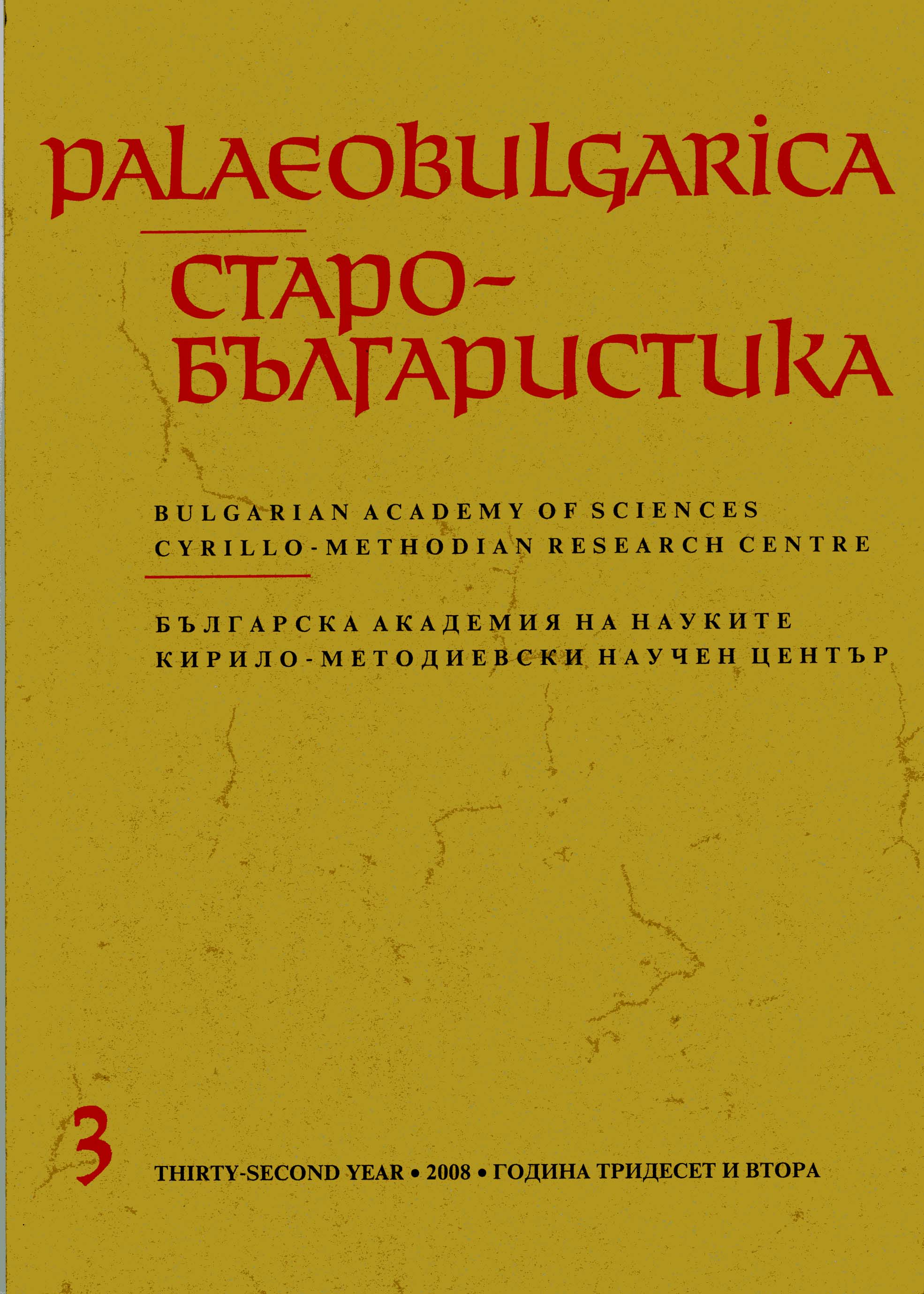Хранениците на владетеля в прабългарските надписи
The Ruler’s Fosterlings in Proto-Bulgarian inscriptions
Author(s): Tatyana SlavovaSubject(s): Language and Literature Studies
Published by: Кирило-Методиевски научен център при Българска академия на науките
Summary/Abstract: The article discusses the expression θρεπτος άνθρωπος (i.e. fosterling) featuring in Omourtag’s and Malamir’s proto-Bulgarian inscriptions as reference to some form of privilege. The conclusion is that the privileged position was neither related to any militaryadministrative post nor to any honorary title; also, it did not depend on the origin or ethnic descent of the chosen person. The author rejects the statements, arguing that the expression θρεπτος άνθρωπος signifies a member of the ruler’s personal protection guard, his companion or an inside man (i.e. living in court). Instead, it is suggested that the expression θρεπτος άνθρωπος refers to young people, raised and fostered in the khan’s court where the khan is their foster father and guardian. This interpretation is based on an old tribal custom, known in Sasanid Iran and among the Turks, Scandinavians and the Celts, but mostly among Caucasian peoples, according to which soon after being born the child is temporarly raised and fostered in a foreign family. Perhaps a similar tradition existed among proto-Bulgarians, too, because traces of the custom of having fosterlings have been found centuries later in Bulgarian folklore and vocabulary as well as in common law and the civilian family code.
Journal: PALAEOBULGARICA / СТАРОБЪЛГАРИСТИКА
- Issue Year: 2008
- Issue No: 3
- Page Range: 36-51
- Page Count: 16
- Language: Bulgarian
- Content File-PDF

